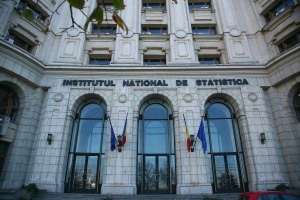The Romanian Constitution:
Art. 80 - The role of the president
(1) The Romanian president represents the Romanian government and is the guarantor of national independence, unity and territorial integrity.
(2) The Romanian president must watch for the compliance with the Constitution and the good functioning of the public authorities. For that purpose, the president serves as a mediating entity between the powers of the state, as well as between the state and society.
The constitutional text is clear enough, but nobody wants to interpret it exactly the way it is written. Not even the magistrates of the Constitutional Court who have decided that the Romanian President has to dismiss the head of the National Anticorruption Department at the request of the Minister of Justice.
According to art. 80 parag. 2 of the Constitution, the Romanian president watches for the compliance with the Constitution and the good functioning of public authorities.
How does the head of state carry out this obligation to watch for the good functioning of public authorities?
It is being stated said within the same constitutional article:
"To that end, the President serves as a mediator between the powers of the state, as well as between the state and society."
Exercising the mediation function to ensure the good functioning of public authorities does not mean acting the way one of those authorities asks you to. Mediation means taking note of the opinions of all the parties involved, analyzing the requests and making his own decision, not all one of that is demanded of them, be it by the Romanian Constitutional Court itself.
Nevertheless, in the public space, there is talk about the suspension of the President of Romania for a ruling of the CCR which makes irrelevant the mediation function of the head of state and basically invalidates paragraph 2 of article 80 of the Romanian Constitution.
Ten days have passed since the CCR published the argumentation of the decision made on May 30, by which it claims that president Klaus Iohannis needs to dismiss Laura Codruţa Kovesi from her position as chief-prosecutor of the DNA.
Since then, a rally of the "white shirts" of the PSD took place, all the sides have presented pros and cons concerning the suspension of president Iohannis, should he refuse to dismiss the head of the DNA, the visit of the delegation of the Venice Commission occurred, as well as a fierce fight in the Parliament between the government and the opposition concerning the amendment of the penal legislation.
While PSD leader Liviu Dragnea doesn't seem willing to speak, for now, about the suspension of the President, the social-democrat vice-presidents are a little more open and have expressed opinions concerning the justifications for a potential suspension.
Adrian Ţuţuianu, Paul Stănescu, Florin Iordache, Olguţa Vasilescu, Gabriela Firea are among those who claim a potential refusal by Iohannis to act the way the ruling of the CCR of May 30 would represent a violation of the Constitution, because in the motivation of the ruling it is said that such a refusal would generate an institutional deadlock among the institutions of the state.
"If the delay isn't reasonable and the ruling of the CCR isn't applied, there will be definitely be an suspension", said Olguţa Vasilescu, in a show broadcasted on the TVR.
Deputy prime-minister Paul Stănescu said: "Yes, I am also saying that he needs to be suspended the moment he refuses to sign the dismissal. We will have to wait and see. He said that he still has a little left to read, that's what the president said, and the moment he says he doesn't agree with the ruling of the CCR, certainly, in the party, we will decide what to do next. We will analyze things from all points of view and we will make a decision within the party".
• The scenario of the PSD: three-step suspension
The first scenario concerning the suspension of Iohannis has been revealed by social-democrat Eugen Nicolicea. According to him, the suspension will be done in three steps.
Step 1: Iohannis is suspended, the interim of the position of president of Romania is taken over by the president of the Senate, Călin Popescu Tăriceanu
Step 2: Tăriceanu issues the decree for the suspension of the head of the DNA and the appointment of her replacement.
Step 3. The parliament annuls the decision to suspend Iohannis. No referendum for his dismissal is held and the head of state returns to Cotroceni.
The plan revealed by Eugen Nicolicea is unconstitutional. Why?
Because once the procedure for suspending the president is initiated, it ends with the Constitutional Court acknowledging the outcome of the referendum for the dismissal of the Romanian president.
Where does that follow from?
From the motivation of the decision of the CCR no. 730 of July 9th, 2012, we note that "the effects of the suspension consist of the interruption of the presidential term until the validation of the referendum by the Constitutional Court."
In other words, the suspension procedure ends after the validation of the outcome of the referendum.
So, Nicolicea's hypothesis is not constitutionally covered concerning the third step presented by the social-democrat.
Concerning the reasons of the suspension, in motivating the same decision 730/2012 the Court ruled that "can be considered serious acts of violation of the provisions of the Constitution the decisions or the avoidance of carrying out mandatory decisions, by which the Romanian president would prevent the functioning of public authorities, would suppress or restrain the rights and freedoms of citizens, would upset the constitutional order or would seek the change of the constitutional order or other facts of that nature which would have or might have similar effects".
Perhaps the social-democrats are thinking that this would provide the justification for the suspension of Iohannis. They could argue that the Romanian president is avoiding the approval of the request for revocation and thus could prevent the functioning of a public authority, especially in the decision of May 30, 2018, CCR speaks about an inter-institutional deadlock, between the Ministry of Justice and the DNA.
• The good functioning, based on the role of mediator
But Klaus Iohannis isn't shirking the carrying out of any act. Even though the CCR says that the Romanian president needs to issue the decree to dismiss the head of the DNA, Klaus Iohannis isn't required to do that. Even if the decision of the CCR is mandatory for all citizens.
Where does that follow from?
According to art. 80 paragraph 2 of the Constitution, the Romanian president watches for compliance with the Constitution and the good functioning of public authorities.
How does the head of state carry out this obligation to watch for the good functioning of the public authorities?
It is mentioned afterwards in the same article:
"To that end, the President carries out the position of mediation between the powers of the state, as well as between the state and society."
"To that end, the President serves as a mediator between the powers of the state, as well as between the state and society."
Exercising the mediation function to ensure the good functioning of public authorities does not mean acting the way one of those authorities asks you to. Mediation means taking note of the opinions of all the parties involved, analyzing the requests and making his own decision, not all one of that is demanded of them, be it by the Romanian Constitutional Court itself.
Exercising the mediation function to ensure the good functioning of public authorities does not mean acting the way one of those authorities asks you to. Mediation means taking note of the opinions of all the parties involved, analyzing the requests and making his own decision, not all one of that is demanded of them, be it by the Romanian Constitutional Court itself.
• The suspension, the patriotic duty of the PSD?
In the debates concerning the suspension of Klaus Iohannis there have been two more scenarios supplied by the politically analysts and journalists invited by the news TV stations on their shows. Whether we're talking about Ion Cristoiu, Rareş Bogdan, Cozmin Guşă and others, the main issue of this period is what Iohannis is going to do with the decision of the CCR and why he needs to be suspended.
The second scenario concerning the suspension of the Romanian president was built on Tuesday night in a show on Antena 3.
Ion Cristoiu claimed that the president has already violated the Romanian Constitution because he is for now refusing to enact the ruling of the CCR. Another reason why Iohannis might be suspended would be if he refuses to pass the laws concerning the Supreme Council of Magistrates, the judicial organization and those amending certain norms of the Penal Code and Penal Procedure Code.
"It is a patriotic duty of the PSD to immediately suspend Klaus Iohannis and to organize the referendum. He has clearly violated the Constitution. The PSD might as well step down from the government right now, if it doesn't happen now, no other law will be promulgated. What will the PSD do if the president refuses to pass the laws? Klaus Iohannis will not sign the revocation simply because he doesn't want to. If the president won't sign, it's over", said Ion Cristoiu.
He also presented what is going to happen if the President is suspended. Tăriceanu would have to enact the decision of the CCR and to promulgate the normative acts concerning the amendment of the criminal legislation.
• June 20, the date of the suspension of Iohannis?
The third scenario was presented by Realitatea TV on the show "Jocuri de putere" ("Power games") moderated by Rareş Bogdan. According to him, the PSD-ALDE coalition, even though it isn't speaking openly about the suspension of Klaus Iohannis, doesn't mean it isn't preparing it.
And the scenario described by Rareş Bogdan has five steps.
In the first phase, the scenario of 2012 would repeat itself, since the suspension of Traian Băsescu. The majority coalition PSD-ALDE is preparing a shared session of the two chambers of Parliament, which is set to be held on June 20, one day prior to the date set by the High Court of Cassation and Justice for the rendering of the ruling on the merit of the "Bombonica" case, where the prosecutors have asked for an exemplary punishment for defendant Liviu Dragnea: 7 years and 6 months of prison.
Moreover, the prosecutors have asked the court, if it sentences Dragnea to prison, to take into account that he is a repeat offender, as he already has a definitive suspended conviction in the Referendum case, and, even if this time we have a ruling on the merit of the case, the magistrates need to issue the immediate incarceration of the PSD leader.
On the occasion of the common joint plenum session of June 20 2018, the majority coalition would change the agenda and put up for debate the suspension of the Romanian president, which it would also approve on the same day.
But this fast-forward plan has a flaw. In order to effectively suspend Iohannis, the Parliament first needs to ask for the consultative opinion of the Constitutional Court. Which would mean that in the following days, the CCR would render a ruling on such a request formulated by the majority coalition.
Moreover, in the motivation of the ruling no. 730 of July 9, 2012 it is stated that "only the Parliament can decide on the suspension of the President, as it is given this power, and once the parliamentary procedure for the suspension of the president of Romania is launched, according to the Constitution, it can no longer be stopped" and that it ends with the validation by the CCR of the referendum for the dismissal of the president.
According to article 95 paragraph 3 of the Romanian constitution that referendum must be held within at most 30 days from the date of the President's suspension.
• The replacement of the heads of the DNA and the DIICOT, priorities of the interim
The second step after the suspension of Iohannis would be for the president of the Senate, Călin Popescu Tăriceanu, to become an interim president of Romania.
The coming step in this scenario involves the interim president signing the decree for the dismissal of Laura Codruţa Kovesi.
That step is possible, because the dismissal of the head of the DNA is among the actions that the interim president may take.
According to art. 98 paragraph 2 of the Romanian Constitution, the interim president of Romania may not exercise the roles stipulated in articles 88-90 and which concern messages addressed to the Parliament, the dissolution of the Parliament and the holding of a referendum concerning matters of national interest.
The fourth step in this scenario, stipulates that the interim president would pass the entire legislative package concerning the judicial system. That is also possible, because it is not among the actions prohibited by the provisions of art. 95 paragraph 2 of the Romanian Constitution.
The step also stipulates the replacement of Daniel Horodniceanu as head of the DIICOT or his removal from the investigation of the complaint brought about by Ludovic Orban, the head of the PNL, against prime-minister Viorica Dăncilă.
At any rate, currently, in the Cotroceni, there is the proposal submitted by justice minister Tudorel Toader, a request which has received a positive opinion from the prosecutors division of the Supreme Council of Magistrates, concerning the appointment as chief-prosecutor of the DIICOT of Felix Bănilă. And so, the interim president could issue two decrees at once: the termination of the interim of Horodniceanu and the appointment of Felix Bănilă, Tudorel Toader's man.
• Iohannis, one step ahead of this scenario
The fifth step of this scenario stipulates that this interim president appoints as the head of the Romanian Foreign Intelligence Service a member of the Social Democrat Party. Unfortunately for those who built this scenario, Romanian president, Klaus Iohannis got ahead of them and yesterday nominated Gabriel Vlase, an MP from the PSD, as head of the SIE. The proposal has left the Parliament and the only thing left to happen is the vote for the new head of the SIE to be appointed through a Presidential decree and to take over the position.
The last step in the scenario for the suspension of Iohannis stipulates the recreation, under a new name, of the political police for magistrates, the former SIPA and DGPA, which would be meant to allow politicians to blackmail judges and prosecutors working the major corruption cases.
We think that such an approach isn't possible, because it would clearly violate European regulations in the sector, which stipulate that judges and prosecutors need to be independent from all points of view in the activity they conduct. If that item were implemented, Romania would be at risk of grave sanctions from the Brussels Commission, the seizing of the European funds and the suspension of the voting rights.
Like the saying goes, where there's smoke there's fire. The fact that there is so much talk about the suspension of Klaus Iohannis shows that in the labs of the majority coalition of PSD-ALDE this is being analyzed, intensely debated and prepared.
What are the social-democrats waiting for? The clear refusal of Iohannis to comply with the decision of the Romanian Constitutional Court of May 30 2018, which states that the Romanian president needs to dismiss the head of the DNA. And then there is the reasonable delay which Iohannis has referred to and which is also mentioned in article 91 paragraph 1 of the Romanian Constitution concerning the roles of the President when it comes to foreign policy, a deadline which isn't clearly specified anywhere in terms of how many days or months it encompasses.



























































